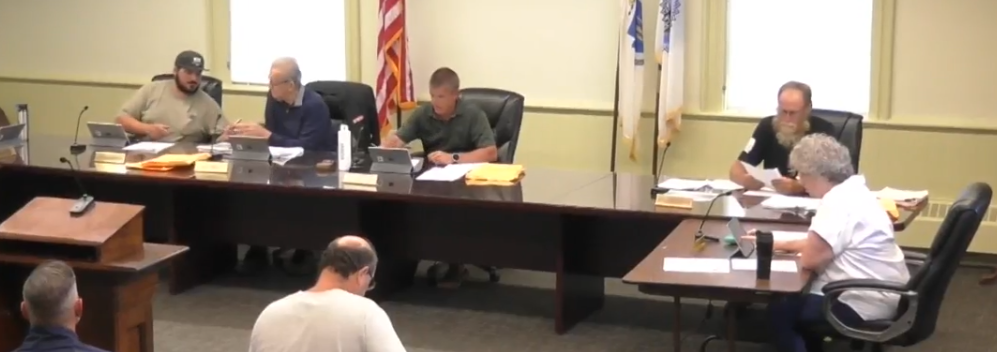Planning board ‘unenthusiastically’ proposes zoning to comply with MBTA mandate
MIDDLEBORO – Planning board chair Allin Frawley supported a new zoning overlay that would comply with Massachusetts Bay Transit Authority multi-family housing guidelines “as unenthusiastically” as he possibly could in a Tuesday, Aug. 6 meeting of the Middleboro Planning Board.
Frawley, along with other members of the Planning Board and Director of Planning and Community Development Leeann Bradley, voiced their strong opposition to the MBTA housing guidelines while also presenting a plan to comply with the mandate.
The state has mandated that towns designated as “MBTA communities,” like Middleboro, should have at least one zoning district that allows multi-family housing as a right, which gives the town little say about potential requirements.
The mandate requires housing developments consisting of at least 15 units per acre to be allowed within a half mile of the MBTA station at 161 South Main St.
According to Bradley, the town is “creating an overlay to comply with the mandate that will be zoned for 1,471 units of multi-family [and] family-friendly [housing].”
The overlay will include parcels that have existing multi-family complexes along Route 28 as well as the town’s already existing 40R housing districts.
Chapter 40R districts are special zoning areas that allow for the construction of high-density housing while giving town officials more say in how it’s done.
Bradley explained that this type of zoning overlay is what other MBTA Communities are calling “paper compliance.”
“It’s already developed land, it’s already multi-family” she said.
Bradley added that the town “wouldn’t be changing our zoning if we weren’t mandated to do so.”
Bradley said she has “the fear” that if the town complies with this state mandate, other mandates could be coming down the pipeline.
“As a premise, I don’t like having to change our zoning because the state is telling us to,” said Bradley. “But if we don’t [comply] we lose funding to three major types of grants … and 13 other discretionary grants.”
One example of a discretionary grant, said Bradley, is the state’s Municipal Vulnerability Preparedness Program grant. This year, the town received $170,000 from that grant to help with the design of downtown Middleboro’s School Street parking lot, she said.
“We’ll be losing a lot of money if we don’t comply with the mandate,” she said. “It’s not my favorite thing.”
“I’m absolutely opposed to the mandate,” said Frawley.
Bradley also said she worries that MBTA multi-family housing guidelines – which are based on a percentage of a town’s population – may change over time as Middleboro’s population naturally increases.
“It seems like in maybe 20 years, 30 years, the whole town [could] be zoned as by-right multi-family,” she said.
“This is all based on a train station nobody asked us about,” added Frawley.
According to Bradley, the town is already “doing a great job with housing” with affordable housing levels “far above” most towns.
This new proposed zoning overlay will be put in front of voters at Middleboro’s next Town Meeting.
If the zoning overlay does not pass through Town Meeting, then Middleboro will be non-compliant with the state mandate, explained Bradley.
“We have to bring it back to Town Meeting … until it passes,” she said. “We’re not responsible for how individuals vote at Town Meeting.”
The Planning Board will hold a public hearing on Tuesday, Sept. 17, said Bradley. “I’d like to do some more outreach to try and spark some interest with the public.”














